CFMC Takes Action
Caribbean Fishery Management Council CONSERVING, RESTORING AND MANAGING OF FISHERY RESOURCES IN THE US CARIBBEAN
JULY-SEPTEMBER 2025
Vol. 1 No. 3
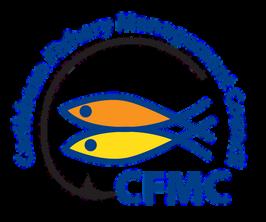
Newsletter to inform and share the progress of diverse projects that advance the sustainability of the U.S. Caribbean fisheries.
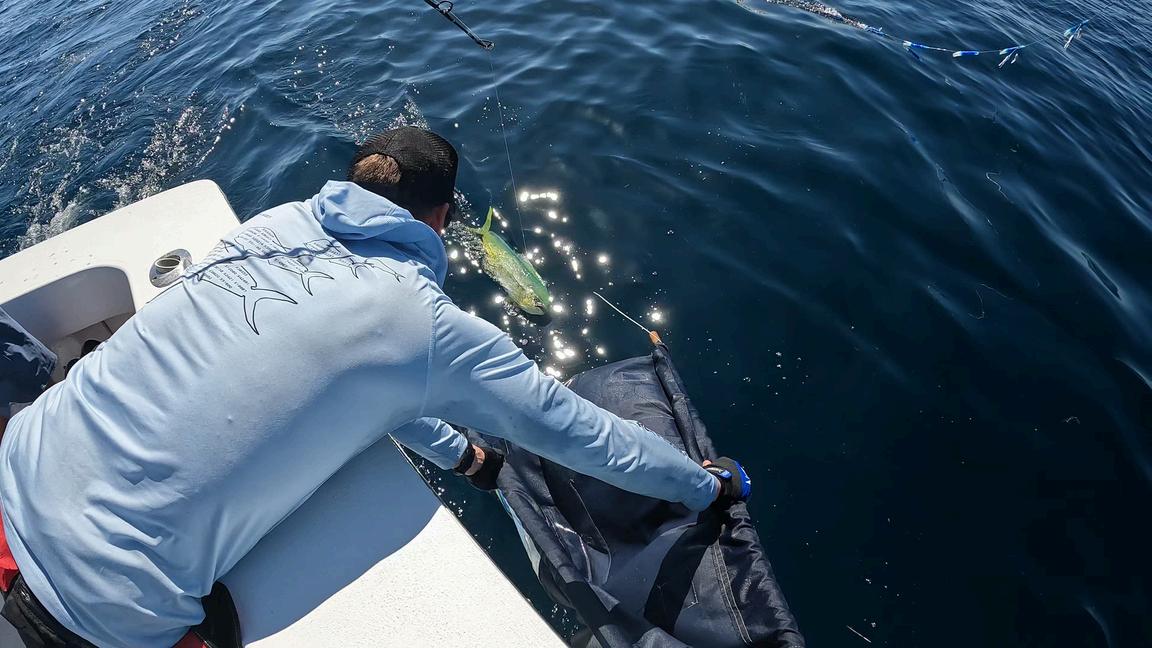

EXCELLENT RESULTS IN RESEARCH ON
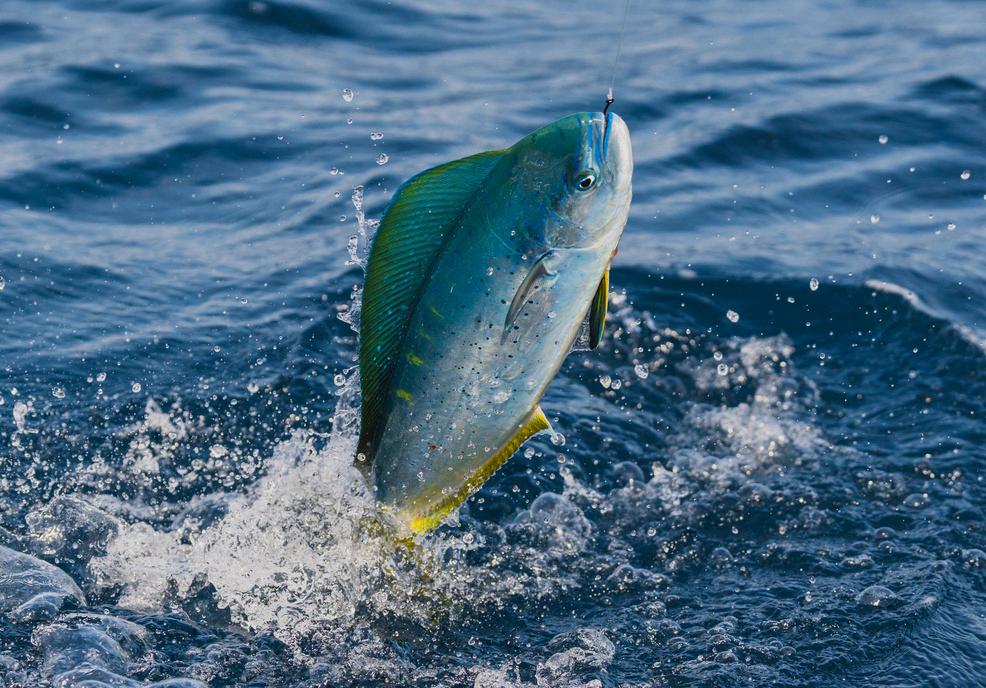
THE BEHAVIOR AND MOVEMENT PATTERNS OF DOLPHINFISH
The CFMC is pleased to share some relevant results achieved during the first year of the project Understanding Impacts of Changing Environments and Fishing Pressure on the Dolphinfish (Coryphaena hippurus) in the U.S. Caribbean and Beyond. Wessley Merten, project leader, well recognized and passionate scientist, director and board chair of the Beyond Our Shores Foundation, will guide us through this learning journey—unraveling fascinating insights into the behavior and movement patterns of this remarkable open-ocean species.


At the present time, more than 303 dolphinfish have been tagged across multiple locations—including St. Croix, Puerto Rico, North Carolina, and Rhode Island—using both conventional and satellite tags. Regardless of the technology, each method yields valuable information, particularly when fish are recaptured. Two exciting highlights introduced here come from conventional tag recoveries at distant sites.
The first one is X49472, a small 16” fork-length dolphinfish tagged and released off North Carolina in the spring of 2024 that was recaptured off Arecibo, Puerto Rico, in the winter of 2025 after 275 days of being released. During this period, the fish grew 24” to a 40” fork-length 19.5 pound adult. This is the first documented evidence in the 24 years of the Foundation’s tagging program that demonstrates seasonal connectivity between North Carolina and Puerto Rico.
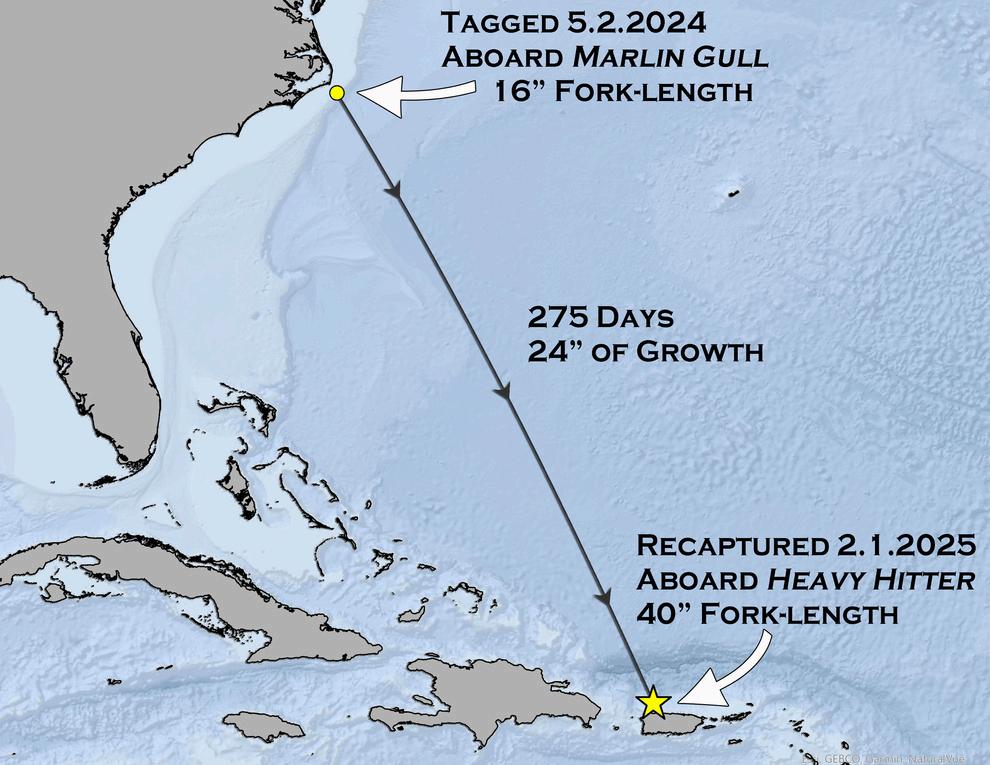
The second remarkable recapture to highlight, X49485, was tagged in the Mid-Atlantic Bight (MAB) and later recaptured off Florida. This 18” fish, the last one tagged during a beautiful September 2024 outing off Rhode Island, was released near a lobster pot. After 219 days, it was recaptured as a 34” (~12.5 lb) adult, 120 nautical miles east of Cape Canaveral, Florida, at NOAA weather buoy 41010. This individual grew 16” (~11 pounds) and demonstrated how a juvenile dolphinfish released in the MAB can return to the U.S. East Coast as a large adult in less than a year.
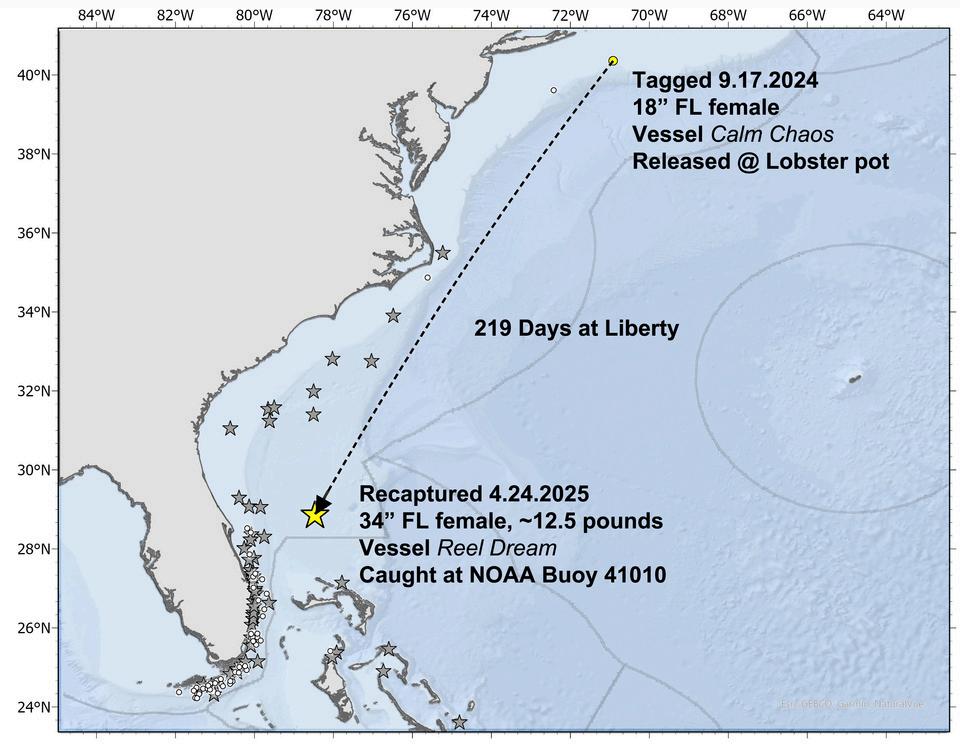
Together, these findings highlight the extraordinary long-distance movements of pelagic species like dolphinfish. By linking these migratory patterns to environmental variability and fishing pressures, the project is advancing our understanding of the complex dynamics that shape the sustainability of our pelagic resources.
https://beyondourshores.org/
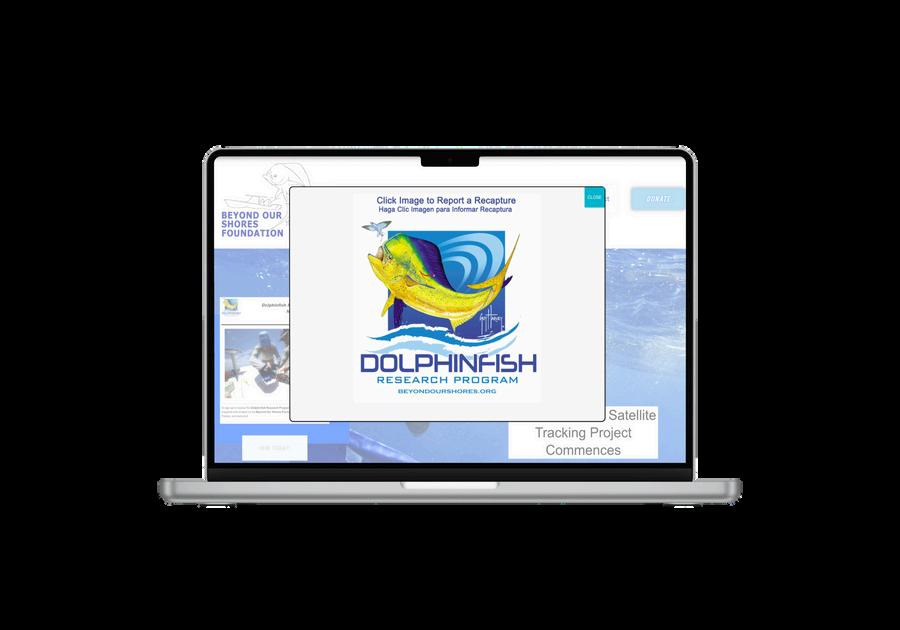
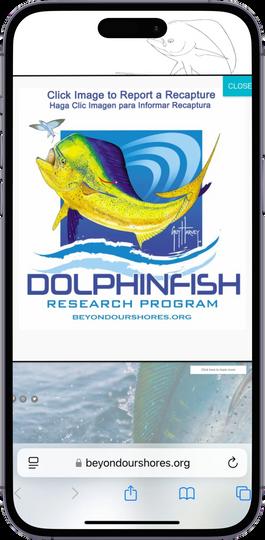
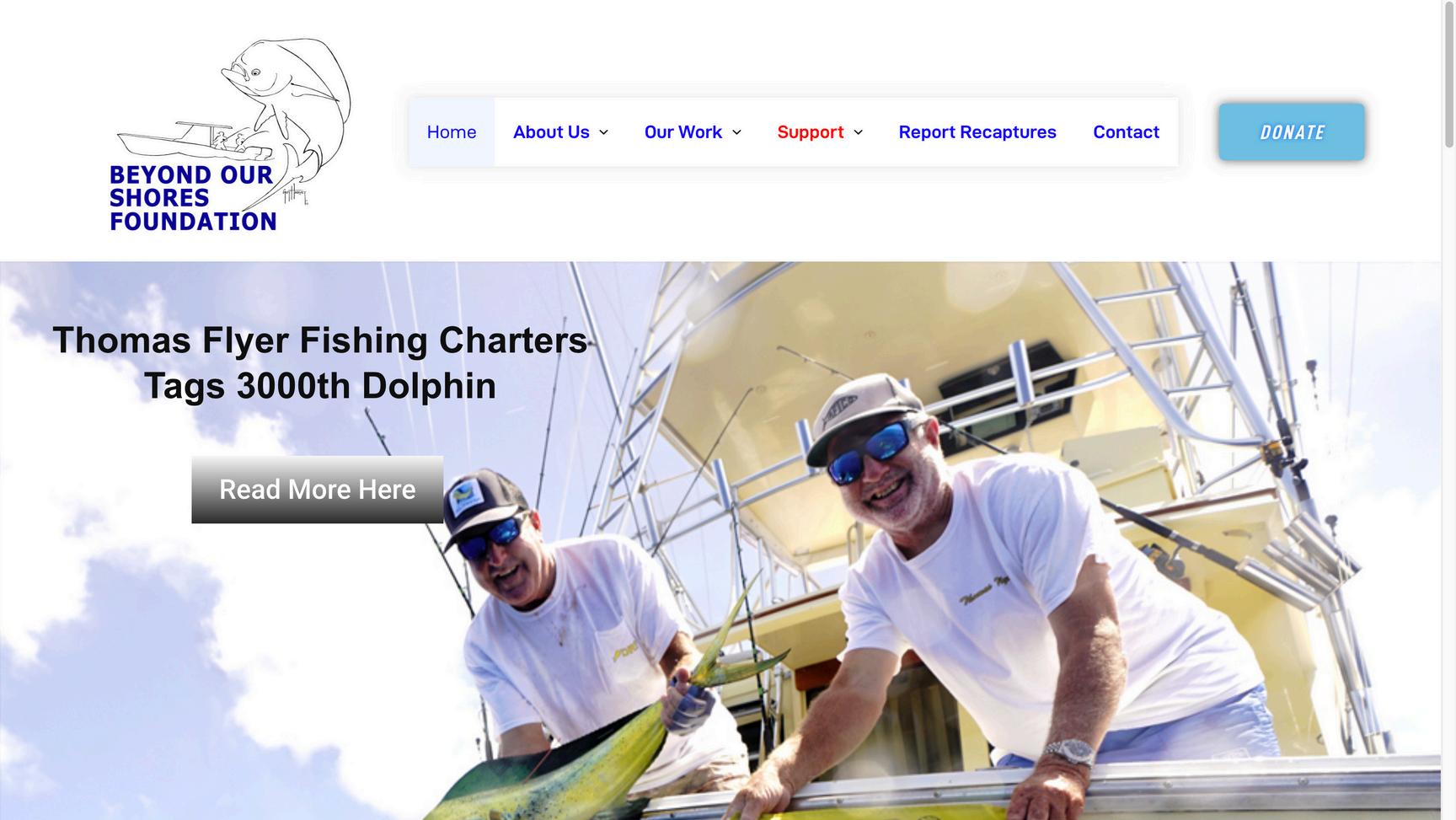



Thanks to all the contributors to this edition.
Writing: Wessley Merten (Beyond the Shores Foundation) and Martha C Prada (CFMC)
Photos and images provided by: Wessley Merten (Beyond the Shores Foundation)
Design and layout: Rosana López Muñoz (Rosana Studio)
Edition: Cristina D. Olán Martínez (CFMC)
Review: Miguel Rolón (CFMC); Diana Martinó (CFMC); Jannette Ramos García (OEAP Chair)
